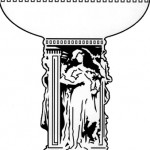This past weekend I attended the Dupont Summit 2014 on Science, Technology, and Environmental Policy Issues, hosted by the Policy Studies Organization (PSO) and held at the Historic Whittemore House in Dupont Circle. I also delivered a presentation of my ongoing coauthored paper on intellectual property and the TPP at a panel on Emergent Issues on Science and Technology. Attending the summit for the first time, I was a bit taken aback by how a conference on science and technology could be held in such a setting that is far from modern. What surprised me was not only the physical setting of the conference but also the atmosphere of the field of science, technology, and environmental policy – everything was quite new. The people of the field, the jargons, the intent of the argument, or the flow of the discussions. The summit being held in the heart of the nation’s capital also made major events throughout the conference very policy-oriented and to the point, while still containing a bulk of political appeal.
As a political economist, having studied the ‘red ocean’ IPE fields of trade and currency, encountering topics in science and technology was a new experience. I study the TPP and the TTIP, but have been approaching the topic more through the lenses of political economy and mostly global trade. What compelled me at the conference was my uttermost ignorance in science and technology issues that we confront everyday that are of policy relevance. Infragard (I had no idea this was a non-profit linked with the FBI), EMP (I had only seen such scare in the Spiderman movies), Ebola, shale gas, nano-technology, GMO – all of these issues were beyond my realm of PhD work and research, but it was time that I sought to understand them as someone aspiring to go into the field of science and technology, broadly defined. Of course, some of these subjects don’t have a direct link to intellectual property, but understanding the field requires a broad overview first and the task of situating oneself in the field.
There are long ways to go for me in the ‘blue ocean’ field of science and technology in policy. It is still a relatively new branch of study in the field of international relations. I think that approaching the field as a political economist requires linking the field with the interests of the actors involved, and developing an argument and analysis that delivers satisfaction to policymakers and industry persons. Not quite sure if the same is required for academic audiences.

